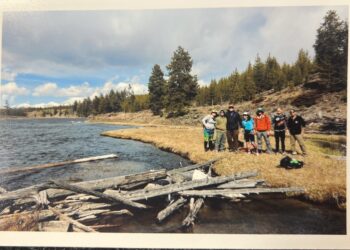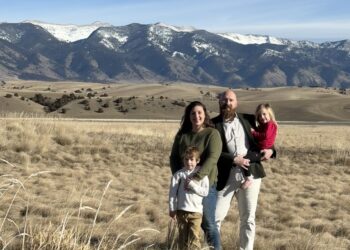By Benjamin Spiker EBS CONTRIBUTOR
The following case study is hypothetical. Any similarity to an actual client case is coincidental. The case is presented as an illustration of a potential investment strategy and should not be viewed as a recommendation to follow any trading program or invest in any particular product or type of product. Tax implications are complicated and vary for every investor. Wells Fargo Advisors Financial Network is not a tax advisor. Every investor should consult their chosen licensed tax professional for specific tax advice.
A client called me a few months ago with some very exciting news. After spending the past 25 years building his successful architectural firm, he was in position to sell his business and improve his work life balance to better Enjoy the Ride. It turns out he expected to receive a nice little windfall of about $5 million. This, along with his accumulated investments would allow he and his wife the ability to fully retire whenever they were ready.
The next part of our conversation wasn’t nearly as exciting. He explained that his accountant had estimated he would pay about $1 million in capital gains taxes for this sale! He asked me if I knew of any strategies that could help mitigate this dilemma. That is when we began to discuss Opportunity Zone funds amongst other ideas.
The 2017 Tax Cuts and Jobs Act established the Qualified Opportunity Zone program to provide a tax incentive for private, long-term investment in economically distressed communities. To be clear, these Opportunity Zone funds are not registered investments with the Securities and Exchange Commission and are typically limited to Qualified Purchasers. A Qualified Purchaser is defined as a U.S. individual investor with at least $5 million in investable assets.
So, why were my client and I exploring these investments at this time? In a nutshell, the possible tax benefits my client could reap from an investment in one of these funds. Here’s how it works: a taxpayer has 180 days from the date of the sale to invest the realized gains (or some portion of the gains) into a Qualified Opportunity Zone Fund. The fund then invests in Qualified Opportunity Zone Property that has been certified by the IRS. The tax benefit to the client is that they now get to defer paying taxes on the gain they realized from the sale of their business until December 31, 2026. They will then receive a 10 percent step-up in cost basis and pay long-term capital gains at whatever the rate is at that time. Furthermore, the original investment into the Opportunity Zone Fund, if held for ten years, will hopefully grow and, when it is sold, the investor’s gain will be tax exempt!
We can use my client as an example. The sale of his business generated a $5 million capital gain since his cost basis was zero. If he invests the entire $5 million in the Opportunity Zone Fund, he does not pay the $1 million in taxes this year. His tax bill will be due when he files his returns for 2026. However, instead of his cost basis being zero, his cost basis will increase to $500,000, a 10 percent increase. This means, if tax rates remain the same, he will go from a $1 million tax bill to a $900,000 tax bill. Additionally, if he continues to stay invested in the fund for the full 10 years and the fund generates a rate of return of 5 percent per year as an example, that $5 million investment grows to about $8.1 million with the $3.1 million being earned with no taxes due when he cashes out!
So, what is the downside? There is always risk associated with investing that should be weighed prior to moving forward. Some of these risks in Opportunity Zone Funds are:
While this strategy is not right for everyone and does carry with it many risks, only some of which I listed above, it can be a tool to assist Qualified Purchasers with deferring taxes and perhaps appreciating investments in a tax-free manner! As with any complicated investment strategy, you should always review with your financial, tax and legal advisors first. If it’s the right fit, this could be another way to help you Enjoy the Ride!
Benjamin D. Spiker is the Co-Founder and Managing Director of Shore to Summit Wealth Management. His wealth management career spans more than 22 years and he currently works and lives in Annapolis, MD with his wife, two sons and daughter.
Wells Fargo Advisors Financial Network did not assist in the preparation of this report, and its accuracy and completeness are not guaranteed. The opinions expressed in this report are those of the author(s) and are not necessarily those of Wells Fargo Advisors Financial Network or its affiliates. The material has been prepared or is distributed solely for information purposes and is not a solicitation or an offer to buy any security or instrument or to participate in any trading strategy Wells Fargo Advisors Financial Network and Shore to Summit Wealth Management are not legal or tax advisors. You should consult with your attorney, accountant and/or estate planner before taking any action.
Investment products and services are offered through Wells Fargo Advisors Financial Network, LLC (WFAFN), Member SIPC. Shore to Summit Wealth Management is a separate entity from WFAFN. Shore to Summit Wealth Management is located at 105 E. Oak Street, Unit 1A Bozeman, MT 59715 # 406-219-2900

















